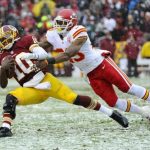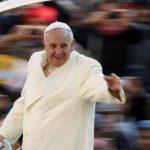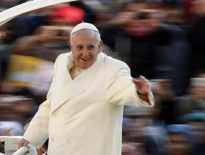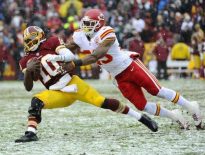(Reuters) – North Korea has executed the powerful uncle of young leader Kim Jong Un, state media said on Friday, the biggest upheaval in years as the ruling dynasty sought to distance itself from responsibility for the isolated states’s dire living standards.
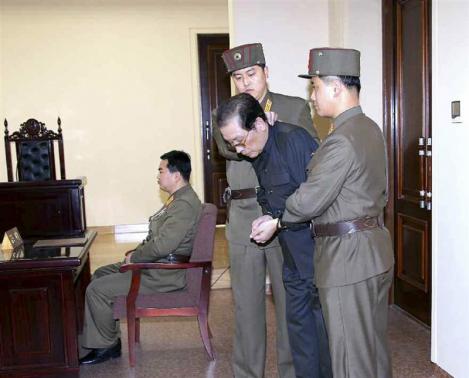
Jang Song Thaek, considered the second most powerful man in the secretive North, was killed just days ahead of the second anniversary of the death of Kim Jong Il, the father of North Korea’s current ruler.
The execution coincided with Kim Jong Un – the third Kim to rule North Korea – suddenly being portrayed in state media as the image of his father rather than his grandfather, Kim Il Sung, who is still revered as the founder of the nation.
Kim Jong Il was blamed by some for the 1990s famine that killed a million people.
The North’s KCNA news agency released pictures on Friday of a handcuffed Jang being manhandled by guards and said that he had been executed for trying to seize power and for driving the economy “into an uncontrollable catastrophe”.
Jang was pictured in the ruling party’s Rodong Sinmun newspaper without his Kim Il Sung loyalty badge on his lapel when he was led away, which would indicate his disloyalty to North Koreans who all wear lapel badges.
“Jang Song Thaek has been purged in a way that suggests Kim Jong Un wanted to make a point,” Ruediger Frank, a North Korea expert, wrote in an article on Johns Hopkins University’s U.S. Korea Institute website 38 North on Friday.
The dictatorial North has been run by the same family since 1948. Its economy, which was once larger than South Korea’s, is now a fortieth the size of its prosperous neighbor. Its 24 million people regularly suffer food shortages, according to the United Nations.
The younger Kim has been credited in the North’s media with presiding over a powerful military state as well as an economic revival.
INTERNAL DIVISIONS, COMPETING FACTIONS
Jang was married to Kim Jong Un’s paternal aunt and is believed to have been 67 years old. He had been purged in 2004 and disappeared from public view until 2006, but became a vice chairman of the powerful National Defence Commission and a member of the ruling Workers’ Party politburo.
He had visited Beijing, North Korea’s only major ally, and was in charge of economic projects as well running a string of illicit money-raising schemes for Pyongyang, according to North Korea experts and defectors.
While North Korea has purged many officials in its 65-year history, it is rare that anyone so powerful had been removed in such a public manner – suggesting a recognition of internal divisions and of competing factions surrounding Kim Jong Un.
“This is a man who could have competently executed a coup in North Korea,” said Mike Madden, an expert on the North’s power structure and author of the North Korea Leadership Watch website and blog.
The commentary from KCNA said that Jang had been plotting to overthrow Kim Jong Un and had “a fantastic dream to become premier… to grab the supreme power of the party and state”.
“The accused Jang brought together undesirable forces and formed a faction as the boss of a modern day factional group for a long time and thus committed such hideous crime as attempting to overthrow the state,” KCNA said.
“The special military tribunal of the Ministry of State Security of the DPRK … ruled that he would be sentenced to death according to it. The decision was immediately executed,” it said, using the North’s title of the Democratic People’s Republic of Korea.
North Korean politics are virtually impenetrable from outside and Jang could also easily have been purged over a falling out with Kim, or even with his wife.
There are signs that the North’s 1.2-million strong army has sought to assert power and that Jang ran foul of Vice Marshal Choe Ryong Hae, the top political operative for the armed forces.
Earlier this week, North Korea said it had stripped Jang of his power and positions, accusing him of criminal acts including mismanagement of the state financial system, womanizing and alcohol abuse.
“From long ago, Jang had a dirty political ambition. He dared not raise his head when Kim Il Sung and Kim Jong Il were alive,” KCNA said.
“He began revealing his true colors, thinking that it was just the time for him to realize his wild ambition,” it said.
Regional powers have watched the purge of Jang and his associates for implications to regional security.
South Korea’s presidential office said it had held a ministerial meeting to review the developments, although the government in Seoul said it had not detected any unusual military activity in the North.
The young Kim, believed to be about 30, has carried out two long-range missile tests and a nuclear weapons test in defiance of United Nations sanctions since he took office two years ago.
At the same time as pursuing his father’s nuclear and military ambitions, he has been portrayed as the North’s “master builder” for presiding over an attempt to revive its moribund economy.
The United States said it was following the developments in North Korea and consulting with allies in the region.
“If confirmed, this is another example of the extreme brutality of the North Korean regime,” said White House National Security Council spokesman Patrick Ventrell.
(Additional reporting by James Pearson in HONG KONG and Warren Strobel and Matt Spetalnick in WASHINGTON; Editing by Paul Tait)


